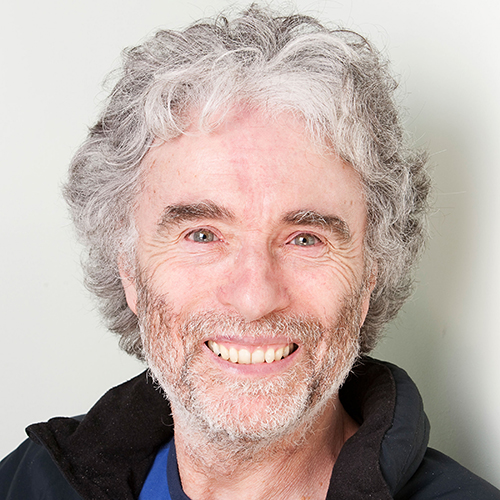Key details
Professor Stephen A Leharne
Emeritus Professor of Environmental Chemistry
Professor Stephen Leharne obtained a BSc in chemistry and polymer science from Cardiff University in 1973. He subsequently stayed on to undertake postgraduate research examining the physics and chemistry of PVC-Plasticizer systems, obtaining his PhD in 1980. He has been at the University of Greenwich and its legacy institutions since 1982. Before this he worked as an analytical chemist in a fine-chemical company in South Wales.
Recognition
- Fellow of the Royal Society of Chemistry (FRSC)
- Chartered Chemist (CChem)
- Editorial board of the International Journal of Applied Environmental Sciences – Editor-in-chief: Professor Soon-Ung Park, School of Earth and Environmental Sciences, Seoul National University, South Korea.
Research / Scholarly interests
Professor Leharne's research is focussed on three distinct areas all of which can be broadly categorised as being applied chemistry.
The application of colloid and surface chemistry to understanding and treating environmental problems. These problems have ranged from understanding the environmental behaviour of organic liquids, such as chlorinated hydrocarbon solvents through to understanding how to undertake remediation and restoration of contaminated soils and groundwater.
For the past 15 years a large portion of his research effort has been focused on the problems posed to the sustainable use of ground water as a source of potable water by the presence of non-aqueous phase liquids (NAPLs) in sub-surface environments. In particular this work has examined the behaviour of NAPLs in aquifer rock formations. Funding for this work has come from EPSRC, the Environment Agency and more recently CL:AIRE (Contaminated Land Applications in Real Environments). The research team have have collaborated extensively with the Groundwater Protection and Restoration Group at the University of Sheffield in this area of work.
A second aspect of this work has been an examination of the use of surfactants to remove organic contaminants and coal tar NAPLs from soils and water saturated porous media. He has also examined the remediation of chlorinated solvent NAPL-impacted environments using iron powder and, more recently, nano-iron. There is an on-going collaborative research interest in examining the use of surfactants for the removal petroleum hydrocarbons from soils with Dr Luis Torres (UPIBI of the Instituto Politécnico Nacional, Mexico City); Dra Rosario Irtube (Instituto de Ingeniería of the Universidad Nacional Autónoma de México; and Dr Erick Bandala (Department of Civil and Environmental Engineering of the Universidad de las Américas Puebla, Mexico).
A second research theme in collaboration with colleagues from the Jordanian Pharmaceutical Manufacturing Company is focused on the development of novel pharmaceutical excipients. There is particular interest in using metal silicates in conjunction with other materials to produce excipients that are used to manufacture tableted forms of drugs that have inter alia superior physical, disintegrating and drug release properties. The second aspect of the research work with JPM is the development of a liquid formulation for the oral delivery of therapeutic proteins. In particular the research team is interested in developing treatments for diabetes and osteoporosis.
The final research theme is focused upon contributions to traditional physical chemistry. These contributions can be classified as being:
- Experimental thermodynamics – in particular the research group is interested in the analysis of calorimetric signals obtained for aqueous solutions of proteins, peptides and water soluble polymers such poly(propylene glycol).
- Vibrational spectroscopy coupled with ab initio quantum mechanical calculations in order to undertake banc assignments. This research is carried out in collaboration with Dr Trevor Dines of the University of Dundee.
Key funded projects
The Materials Chemistry Research Group (MCRG) have recently commenced a project, funded by the Royal Society and DFID (the Department for International Development), that seeks to examine the problems posed by gold mining in the Volta River Catchment to water and soil quality. The objective of the funding is to obtain initial data that may be used to support a bid for £1.2 million to examine the issue in more detail and to build capacity in the partner countries to undertake research and training in water and soil protection.
A second project is concerned with producing an illustrated handbook of LNAPL behaviour in soils and aquifer formations. LNAPLs (light non-aqueous phase liquids) are a class of liquids characterised by their immiscibility with water and their density, which is less than that of water. Typical representative LNAPLs include petrol and hydrocarbon solvents such as white spirit. They represent a pernicious class of environmental contaminants that are capable, through spillages of contaminating groundwater – an important source of potable water for nearly 40% of the population in England and Wales.
The project, which is funded by Shell Global Solutions and administered by CL:AIRE (Contaminated Land: Applications in Real Environments), aims to provide regulators and workers in the environmental engineering community with a handbook that details the fate and behaviour of LNAPLs in representative UK aquifers such as the Chalk and Permo-Triassic sandstone.
The MCRG are currently coming to the end of a third project funded by Tempus, which sought to build capacity in the Republic of Serbia to launch a Master's programme in environmental chemistry. The programme included all the chemistry faculties in publically funded universities in Serbia and created a knowledge exchange network for the dissemination of best practice in environmental investigations.
The group recently completed a project funded by EPSRC that examined the use of silica, iron and iron oxide nano-particles as emulsion stabilisers. The aim of the project was to examine how readily these particle-stabilised emulsions could be used for the removal of chlorinated hydrocarbon solvents from aquifer rocks.
